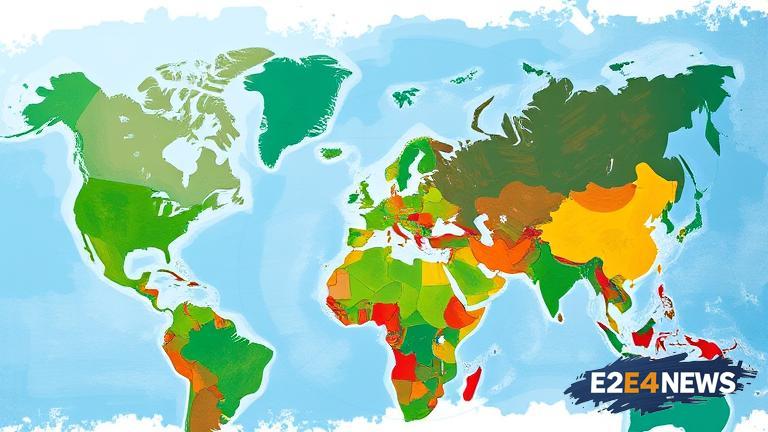The world is witnessing a profound transformation in the global economy, marked by the rise of new economic powers, the decline of traditional ones, and the increasing importance of emerging technologies. The COVID-19 pandemic has accelerated this shift, forcing countries to re-evaluate their economic strategies and adapt to a new reality. The United States, once the undisputed leader of the global economy, is facing challenges from emerging economies such as China, India, and Brazil. These countries are investing heavily in technology, infrastructure, and human capital, positioning themselves for long-term growth and competitiveness. Meanwhile, the European Union is struggling to maintain its economic momentum, hindered by internal divisions, bureaucratic red tape, and a rapidly changing global landscape. The Middle East, rich in natural resources, is also undergoing significant economic transformations, driven by governments’ efforts to diversify their economies and reduce dependence on oil exports. The region is witnessing a surge in foreign investment, particularly in the technology and renewable energy sectors. As the global economy continues to evolve, countries are being forced to navigate complex geopolitical relationships, trade agreements, and security concerns. The rise of nationalism and protectionism is also having a profound impact on global trade, with countries increasingly turning inward and imposing tariffs on imported goods. Despite these challenges, there are opportunities for cooperation and collaboration, particularly in areas such as climate change, sustainable development, and human rights. The global economy is becoming increasingly interconnected, with the growth of international trade, foreign investment, and global supply chains. However, this interconnectedness also poses risks, including the spread of economic shocks, cyber threats, and pandemics. To navigate this new world order, countries must be agile, adaptable, and willing to invest in the technologies and skills that will drive future growth. They must also prioritize international cooperation, diplomacy, and multilateralism, recognizing that the challenges facing the global economy are too complex to be addressed by any one country alone. Ultimately, the future of the global economy will depend on the ability of countries to work together, share knowledge, and leverage their collective strengths to address the common challenges that lie ahead. The world is at a critical juncture, and the choices made today will shape the course of economic history for generations to come. As the global economy continues to shift and evolve, one thing is certain: the future will be shaped by those who are able to adapt, innovate, and collaborate in the face of uncertainty.
